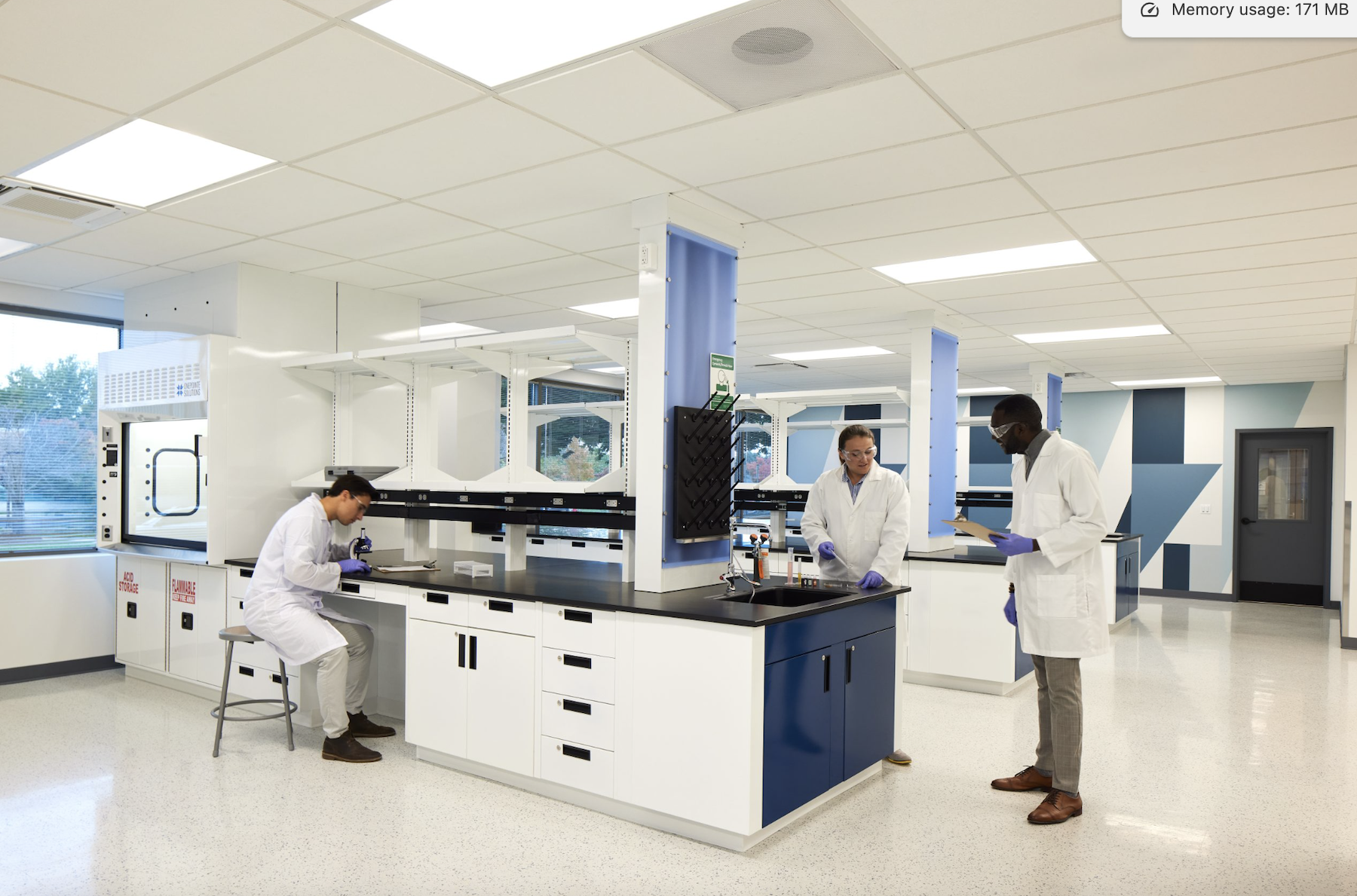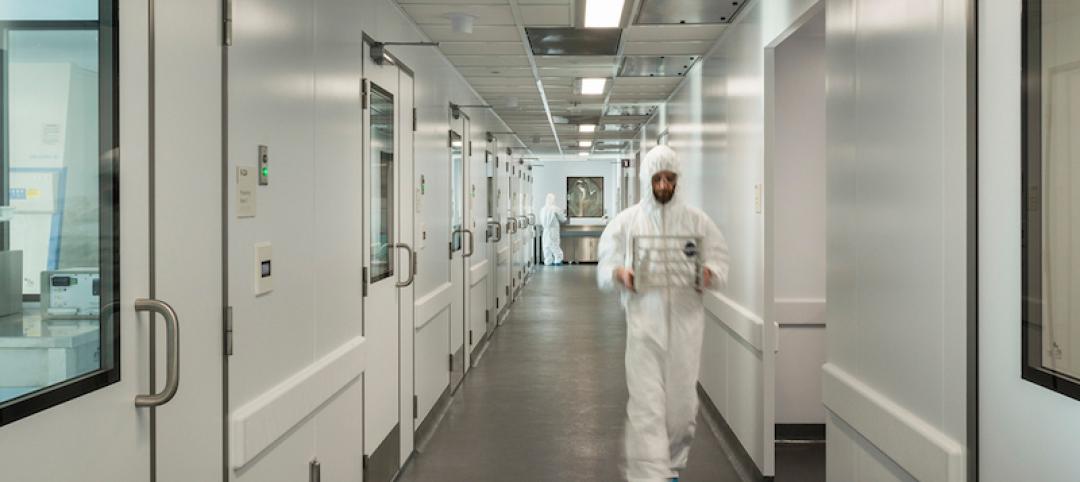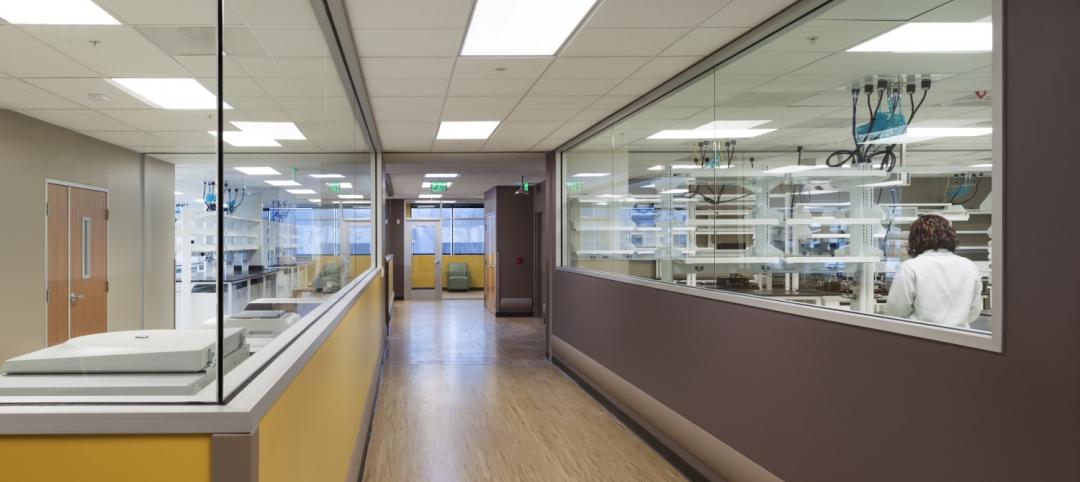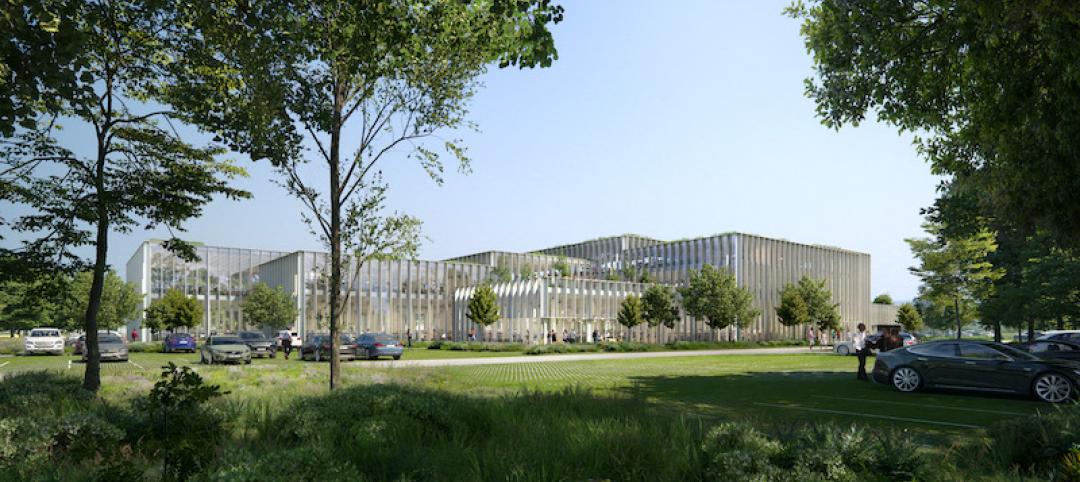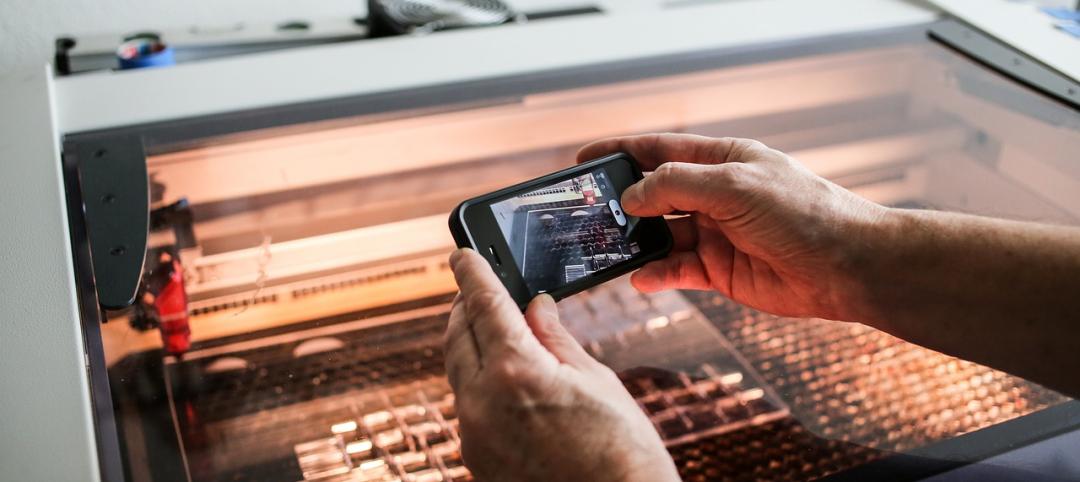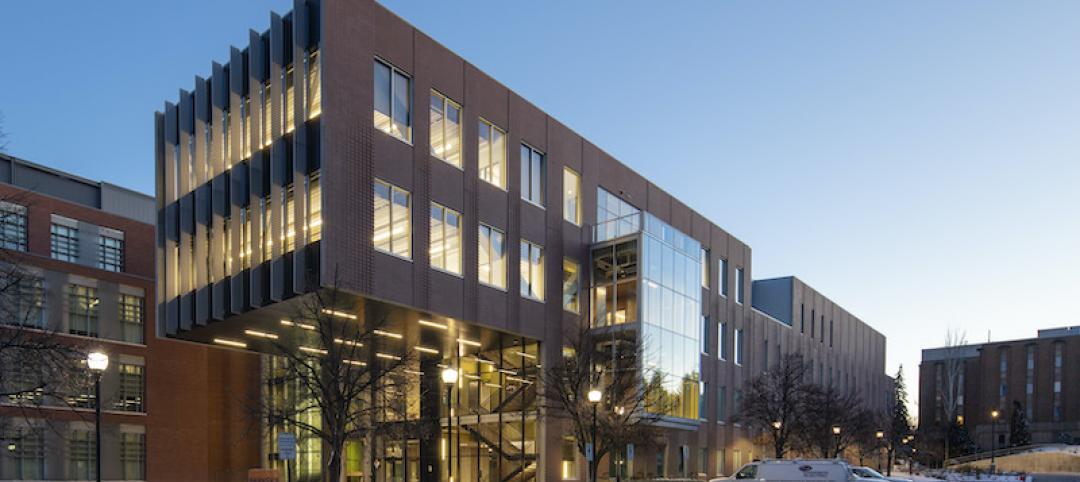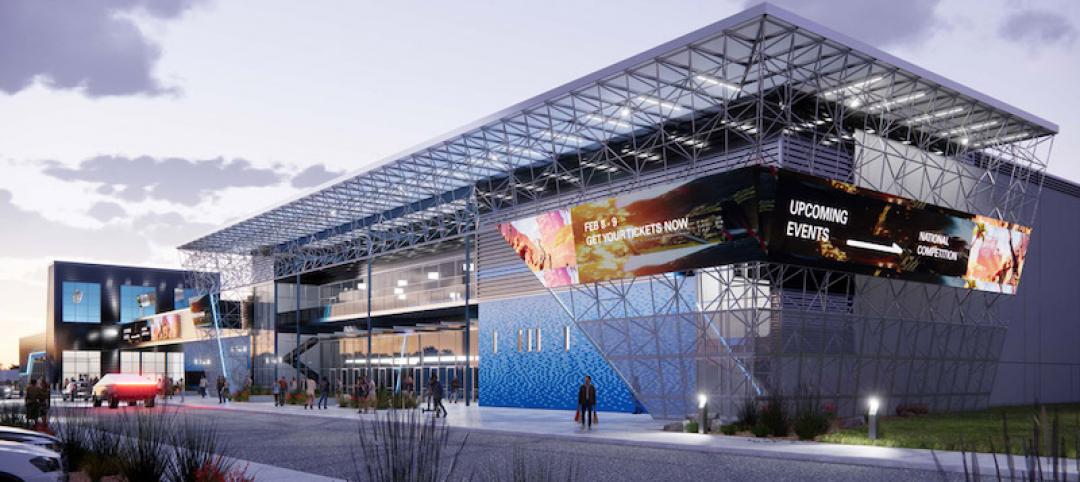With demand for lab-based research increasing, the redevelopment of vacant office space for life science applications has been gaining traction. Last May, for example, CBRE estimated that half of the 125 office conversion projects that were underway then were being adapted for life-science use.
Among the recent conversions are two office buildings, 32,000 and 52,000 sf, within the Rock Creek Property Group-owned Precision Labs campus in Germantown, Md., that have been made into a cGMP-ready white box facility and a state-of-the-art lab, respectively.
Ware Malcomb’s science & technology group, working in tandem with the firm’s interior architecture and design and site planning studios, completed this adaptive reuse project last June with the general contractor Coakley & Williams Construction, the MEP engineer CFR Engineering, and the CE VIKA-MD. Rock Creek Property, the project developer, retained the services of Facility Logix as the subject matter expert. (Ware Malcomb disclosed information about the project last month.)
Office onversions focus on MEP upgrades
To convert these office buildings into move-in ready speculative BSL-2 labs, the building team focused on enhancements to their electrical, mechanical, and wastewater infrastructure within the context of the site’s original zoning.
The single-story 20430 Century Boulevard building (the white box conversion) was reimagined to accommodate a full-building headquarters with 20-ft clear heights, 30x40-ft column spacing, five loading docks, and optimal utility services and floor load capacity. The upgraded utilities provide tenants with full autonomy to customize the space as needed.
The two-level 20440 Century Boulevard building (the lab) was transformed into a multi-tenant life science office/lab space with six BioSafety Level 2 wet lab suites ranging from 2,500 to 7,500 sf with 15-ft clear heights and modern mechanical systems.
According to Ware Malcomb, the building team considered sustainability measures that would control costs and minimize construction waste. These included maintaining existing suite demarcations and lighting fixture locations, and reusing air handing and other mechanical equipment. The team installed new energy efficient LED lighting, and GreenSpec- and Watersense-licensed plumbing fixtures. Also installed were a high efficiency energy recovery variable refrigerant flow system for heating and cooling, and a building automation system to control and monitor the HVAC equipment.
“The project exemplifies innovation, flexible design, and creative repositioning,” said Lori Ambrusch, Ware Malcomb’s Director of Science & Technology, in a prepared statement. The cost of the conversions was not disclosed.
Last June, for the website LabDesign News, Ambrusch co-authored, with CFR’s Vice President Jason Sambolt, an article that addressed design and engineering considerations for office-to-lab conversions. The article points out, for example, that there is a better chance of the building’s existing electrical service being adequate if there is not a need for a large amount of lab equipment, and the building has a natural-gas service. If an electrical service upgrade is required, building teams must account for extended distribution lead times for switchgears (up to 52 weeks at the time of the article’s publication), as well as the fact that larger switchgears will decrease rentable square footage.
Related Stories
Architects | Aug 5, 2021
Lord Aeck Sargent's post-Katerra future, with LAS President Joe Greco
After three years under the ownership of Katerra, which closed its North American operations last May, the architecture firm Lord Aeck Sargent is re-establishing itself as an independent company, with an eye toward strengthening its eight practices and regional presence in the U.S.
Laboratories | May 6, 2021
The big shift: How laboratory design should respond to personalized medicine
Crucial to the success of personalized medicine is the “big shift” away from large-scale pharmaceutical manufacturing to small-scale lab manufacturing.
Laboratories | Mar 10, 2021
8 tips for converting office space to life sciences labs
Creating a successful life sciences facility within the shell of a former office building can be much like that old “square peg round hole” paradigm. Two experts offer important advice.
Giants 400 | Dec 3, 2020
2020 Science & Technology Facilities Giants: Top architecture, engineering, and construction firms in the S+T sector
HDR, Jacobs, and Turner head BD+C's rankings of the nation's largest science and technology (S+T) facilities sector architecture, engineering, and construction firms, as reported in the 2020 Giants 400 Report.
Giants 400 | Dec 3, 2020
2020 Laboratory Facilities Sector Giants: Top architecture, engineering, and construction firms in the U.S. laboratory facilities sector
Affiliated Engineers, HDR, and Skanska top BD+C's rankings of the nation's largest laboratory facilities sector architecture, engineering, and construction firms, as reported in the 2020 Giants 400 Report.
Laboratories | Nov 16, 2020
Washington State University’s new Plant Sciences Building opens
LMN Architects designed the project.
AEC Tech Innovation | Sep 18, 2020
New Innovation Center should heighten Port San Antonio’s tech profile
The facility will include a 2,500-seat arena and serve as new home for the city’s S&T museum.
Laboratories | Aug 25, 2020
Video: What's driving the boom in life sciences real estate?
JLL's Audrey Symes discusses the drivers of growth across the nation's life sciences cluster hubs.
Laboratories | Jul 24, 2020
Customized labs give universities a recruiting edge
CO Architects is among a handful of firms that caters to this trend.


